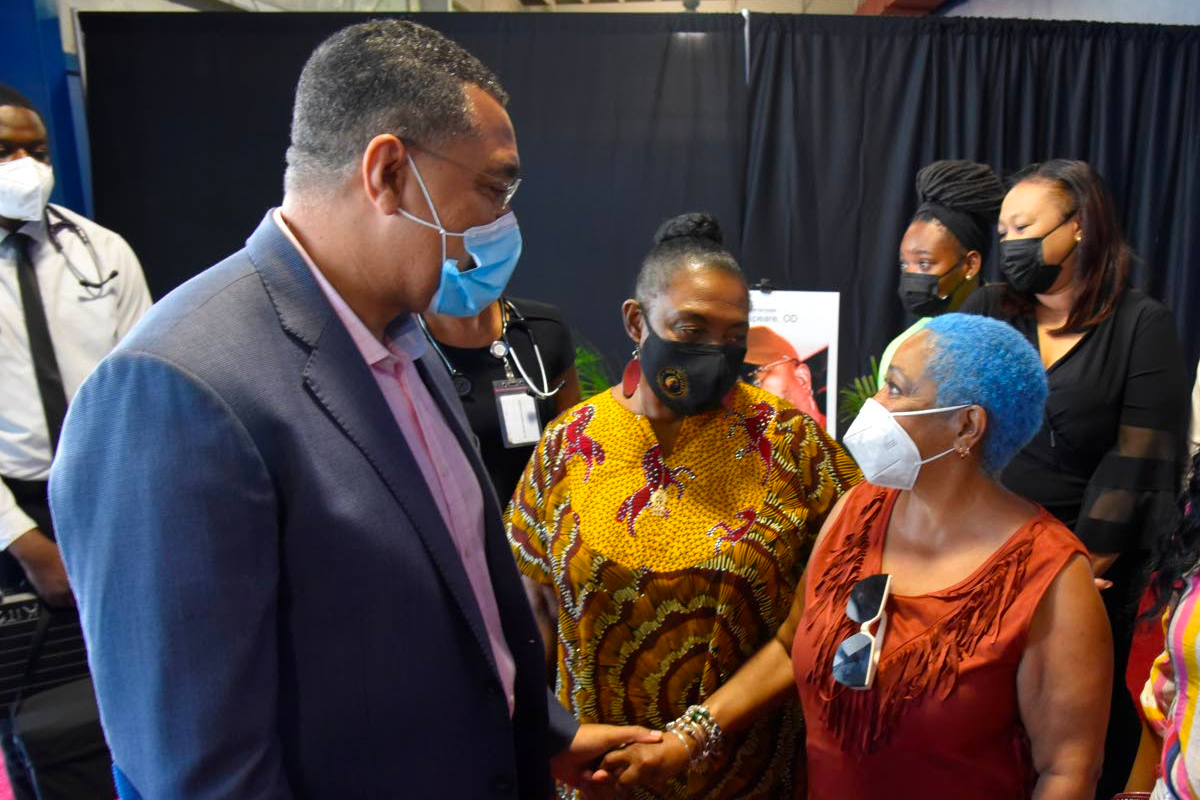Holness Says Jamaican Gov’t Will Not Censor Dancehall Lyrics

Prime Minister Andrew Holness says his administration will continue to maintain its hands-off approach, and will not be censoring any Dancehall artists or their lyrical content, even if depraved or degenerate, but will, instead, utilize the usual gentle persuasion.
Speaking to the media at the funeral service for legendary bassist and music producer Robbie Shakespeare, Holness said that he was aware that there were many concerns being raised by the general public about the unsavory content in much of the new music being released.
“There are many people who feel that the message has been diluted, diverted, and that though there is still talent, the talent may not be directed towards the social good,” Holness told The Entertainment Report.
“And that is a concern, what can government do? It is a tricky issue. When Government gets involved in these things, it tends to always create more problems sometimes. And so, I do stand off a little bit and observe, and say privately to those who I can speak to say ‘hey, you need to take charge of the music again’”, the Prime Minister explained.
Holness, who is also Member of Parliament for St. Andrew West Central, appeared to concur with former Deputy Speaker of the House of Representatives, Lloyd B Smith, who contended recently, that Jamaican music enthusiasts were lamenting the decline in the quality of songs being produced, that Dancehall appears to have not only lost its way but, and may well be a major contributor to the high levels of crime and violence in Jamaica.
Smith had pointed out that, unlike early Dancehall compositions which had impressive lyrical mastery, covered a wide range of social, cultural, and political issues, as well as love, rebellion and revolution against the forces which helped to generate poverty, racism, injustice, and government oppression, the newer artists’ lyrics trended towards debauchery and depravity.
He had argued that Dancehall, which initially influenced American hip hop, has made an about-turn, moving from wholesome lyrics, for the most part, to gun lyrics and songs laced with expletives and sexually explicit material.
This, he said, arose “as Jamaican artistes crossed over to the black American subculture, exemplified by skimpily dressed women with bouncing breasts and men with their underpants on full display”.
Smith had also pointed out that while some people might argue that many of the Dancehall artist’s unwholesome songs simply reflect the reality of their lives, “so does No Woman No Cry and Strength of a Woman”.
During the Entertainment Report interview, Holness said that: “there is always a space for gimmicks lyrics. there is always a space for, you know, the edge”.
“But we must not forget that what gave Jamaica the place on the international stage and garnered the reputation, was that we stood for something. We meant something to people,” the Prime Minister added.
Referencing the passing of Shakespeare and several other veterans of the music in recent times, Holness said that the standards set by their generation appear to have missed those of the present day.
“The guard is passing. The generation that accounted for the creation of the great Reggae music, the cultural influence our pop culture the world over – the symbol of resistance to oppressions, the symbol, of the consciousness of humanity, that is somehow slipping away from the music,” he said.
Approximately two weeks ago, Minister of Entertainment and Culture Olivia “Babsy” Grange, during an interview at the Reggae Month Church Service and Launch called on Jamaican artists and songwriters to steer clear of gun lyrics.
Instead, she recommended that they use the island’s music to promulgate the positive vibrations for which Dancehall and Reggae have been long-known and embraced globally.
Grange, who is a former manager of Bounty Killer, Shabba Ranks and Patra, had mused that that based on the “difficulties” Jamaica is currently facing, musicians ought to pay special attention to the lyrical content of their songs.
“The message is in the music and it is important that we convey positive music…. I am going to use the opportunity to make a special appeal to the music sector and to the practitioners and particularly to the songwriters: we want you to promote, to write and to sing and perform positive songs,” the Minister had stated.
Contending that Jamaica and the rest of the world were “going through troubled times” Grange had said that Reggae music was known for uplifting people and pleaded for musicians to continue on that trajectory.
“It’s known for being that Balm in Gilead when you are going through troubled times, and when you are challenged. And so I am asking the singers and songwriters and the musicians, let’s keep the music positive; let’s move away from that edge that I see creeping in. Let’s get rid of the gun lyrics; let’s get rid of the defamatory way that we refer to our women. Let us use the music to do good and let’s use the music to inspire,” she had added.
